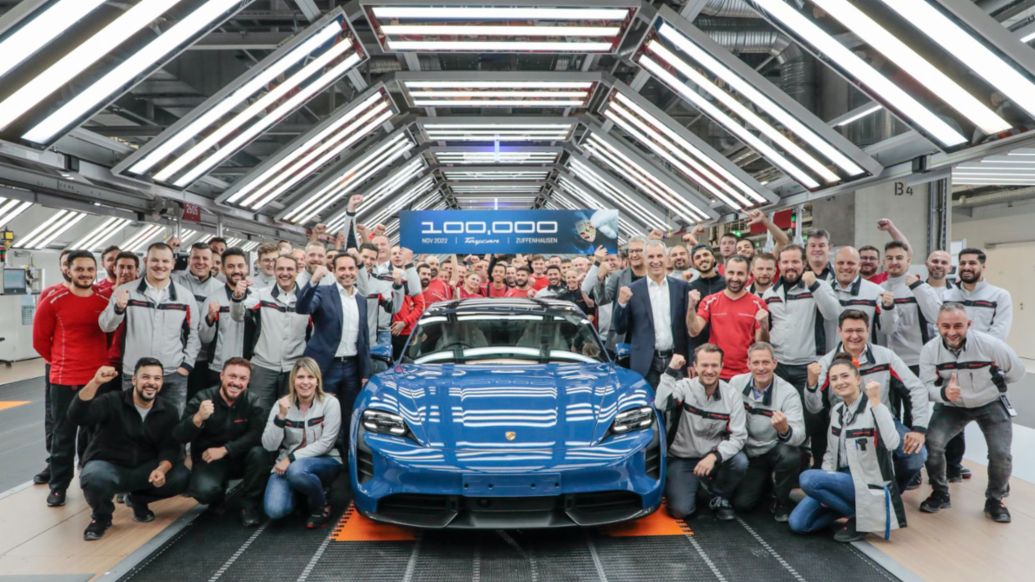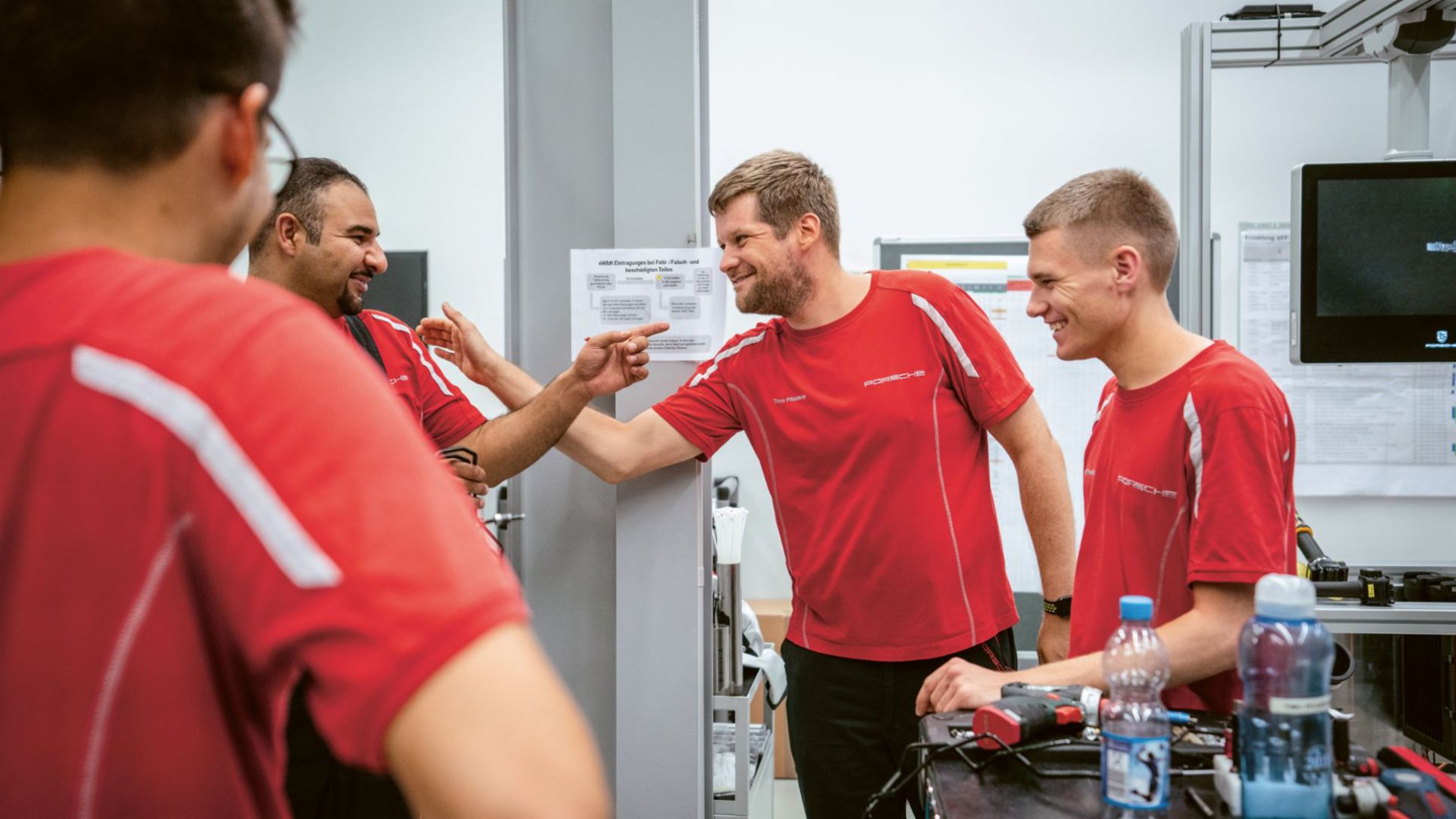Porsche’s main site is in Germany, which means it is required by national law to engage in corporate co-determination. At the same time, it is an important pillar of the corporate culture. Porsche wants its employees to share in its success and to safeguard their jobs.
Corporate co-determination is based on a constructive, cooperative dialogue between the employer and employee representatives. Porsche has a long tradition of open, trusting cooperation, and it always strives to balance both sides’ interests fairly. This position has been codified in the Code of Conduct. The Code of Conduct has been implemented throughout the company.
Porsche has been systematically meeting the obligations arising from corporate co-determination for decades and has positive experience in this area. For one, it is natural for employees and their legal representatives to be informed as soon as possible and in as much detail as possible about, and to be involved in, any significant changes regarding operational workflows or the organization of the company. This is done in compliance with national laws, applicable collective bargaining agreements, and works agreements. Porsche is also a member of the employers’ association Südwestmetall and is therefore part of the social partnership actively practiced between the metal and electrical industry and the IG Metall trade union. As such, the collective wage agreement applies to Porsche employees.
Porsche Leipzig has been a member of the Saxony Employers’ Association for the Metal and Electrical Industry (VSME) since January 1, 2019. Its employees are also subject to the transitional bargaining agreement agreed with IG Metall. Other companies, for example, are subject to company-level collective agreements and/or work with elected employee representatives. Consequently, the interests of more than 98 % of all employees in the national Group companies in Germany are represented through collective bargaining agreements or elected works councils.
Additionally, the employees of Porsche appointed representatives in accordance with the relevant election principles in 2022.
The Supervisory Board of Porsche has equal representation and is therefore able to represent the interests of each side.
Collective bargaining agreements apply at Porsche in order to guarantee better working conditions for the parent company and numerous national subsidiaries. In 2022, for example, the core workforce of the majority of the national Group companies enjoyed employment protection governed by job security agreements. This protection also provides for taking on trainees and students on dual study programs. Rules on mobile working have also been put in place, and a common understanding of the internal transformation at Porsche has been established.
Besides collective agreements, co-determination is therefore a key driver of excellent work and helps enable employees to actively involve themselves at Porsche.
Open communication channels

Porsche offers numerous ways of making suggestions, reporting problems, or registering complaints with committees and decision-making bodies. It is also possible to talk directly to individual members of the Works Council at any time. Alongside the Works Council at Porsche, there are, for example, interest groups for employees with severe disabilities and representation for young workers and trainees. Both of these bodies are closely integrated with the Works Council and involved in its decision-making processes. At all times, employees can view the current regulations in the conventional communication portals, such as the intranet at Porsche.
Furthermore, the Works Council provides employees at Porsche sites in Germany with comprehensive information on a regular basis at its workforce meetings, which also serve as an open platform for discussion. The coronavirus restrictions during 2022 meant that works meetings could only take place on a limited basis. Nevertheless, communication with the workforce continued through the intranet, information videos, and email.
If employees have complaints or concerns, corresponding points of contact are available. If they have questions or doubts about the Code of Conduct or compliance in general, an employee’s first point of contact is their line manager. A central compliance help desk is also available. All inquiries are treated as confidential in keeping with the data protection regulations.

